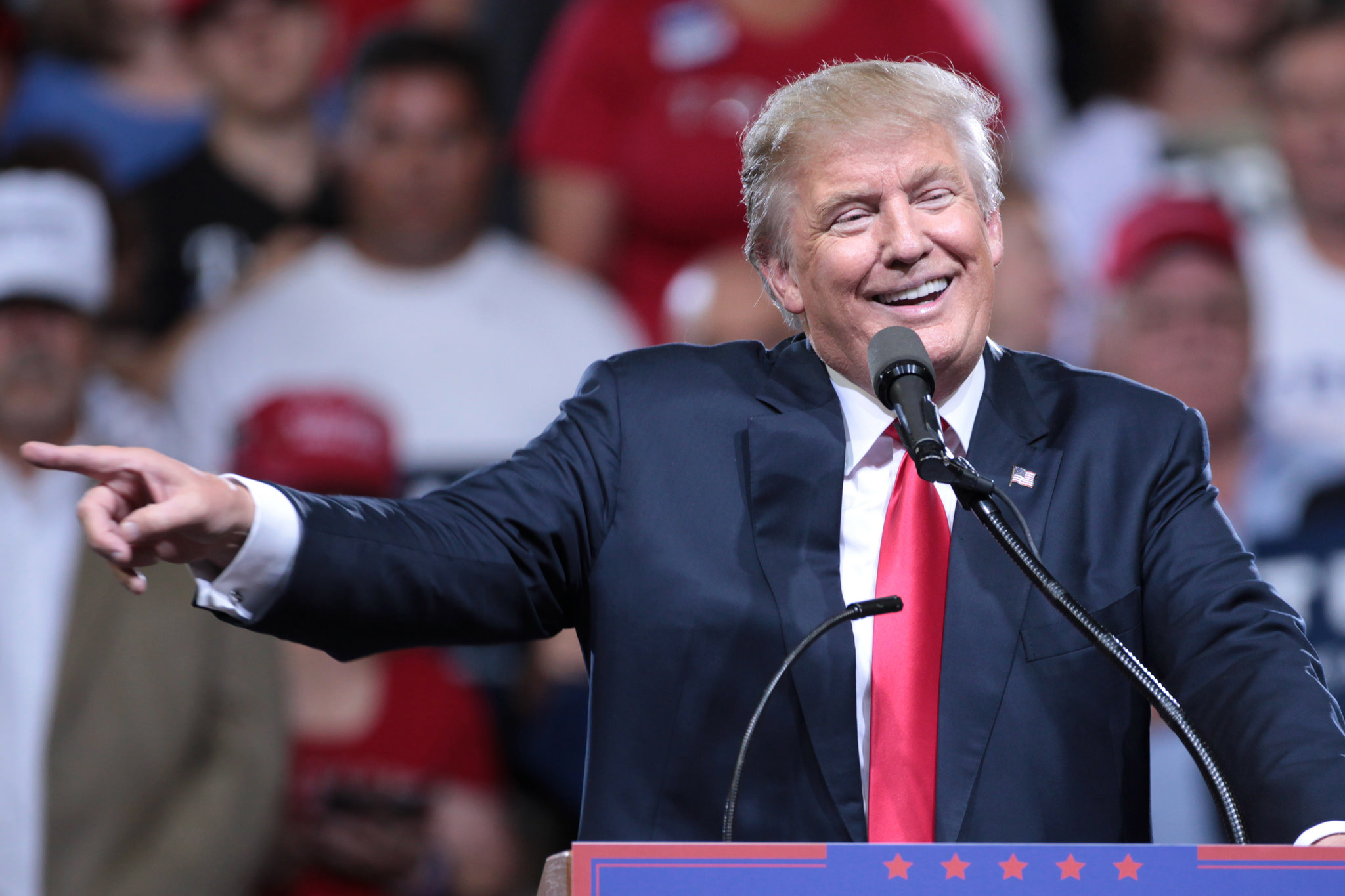Like this article? rabble is reader-supported journalism. Chip in to keep stories like these coming.
There are so many ways to describe Donald Trump. Entitled. White. Wealthy. Hateful. Ignorant. An asshole.
None of those facts make him “crazy.” Unfortunately, “insanity” of some kind seems to be the only explanation that the mainstream media can find for the phenomenon that is Donald Trump.
Throwing around language about mental illness like this, without evidence, is not okay. Not ever. And when it’s about someone like Donald Trump, it carries even more power and potential to do harm, even when our intentions are good.
Trump’s ideas and behaviour are based in ignorance, selfishness, scapegoating and, most of all, hatred. This is not mental illness, it’s just an extreme version of hatred that is seen in the U.S. (and elsewhere) every day.
Take, for instance, his racist, anti-Muslim and anti-immigrant policies (if they can be called policies). Trump uses these to fire up the emotions of white supporters who are angry at the system and looking for someone to blame.
People in America are right to be angry at the system. The wealth gap is wider than ever. Good jobs are disappearing and household debt has soared. This is the result of capitalism and decades of neoliberal policy by successive governments, both Democrat and Republican.
(While I obviously don’t support him, Trump is doing a way better job than the Democratic establishment of tapping into emotion and recognizing that the U.S. has real problems that need to be fixed.)
Since the beginning of capitalism, the capitalists have incited hatred against people of colour so that white people will blame them instead of the system. It’s an age-old tactic to divide and conquer: convince white people that Black people are the reason for their problems, and watch them fight each other instead of the system.
Don’t believe me? Remember that just a few months ago, one of Nixon’s advisors admitted that the war on drugs was invented to stifle black people and “hippies” who were fighting for equality.
Trump has just taken this to a new level. He’s feeding off the previously-quieter racism of white America. It’s a divide-and-conquer tactic: the anger of white Americans is directed at people of colour instead of at the wealthy and the system.
Trump has very clearly and obviously incited violence, not just in passing, but as a central part of his campaign strategy.
Then there is his “erratic” behaviour. His behaviour is not the behaviour of a person with mental illness. His behaviour is a lot more like an extreme case of a man-child who has always gotten his own way, never learned self-awareness, and never cared about other people.
Sure, he could be a sociopath, but even sociopaths can be raised to be pretty decent humans under normal circumstances. Given Trump’s self-centered attitude and privileged upbringing it’s a lot more likely that he was simply never taught to think about anyone but himself. That’s not a mental illness, it’s the natural (and terrifying) result of patriarchy, entitlement and privilege.
When we call Trump “crazy”, or speculate that he might be mentally ill, particularly in public, we gloss over all of this. We take the very real problems of our world — racism, capitalism, patriarchy — and scapegoat an illness.
When we call him crazy, we ignore the real issue, and we refuse responsibility for ridding the world of hatred.
But more than that, when the word “crazy” gets thrown around, we create stigma. We conflate illness with hatred and violence.
When the word “crazy” gets thrown around, we even risk inciting violence ourselves, by making it okay to hate people with mental illness. People with mental illnesses are at a greater risk of being shot and murdered by police or others, in part because there is a huge misunderstanding of mental illness and intellectual disability in our society. Anyone who misuses any language around mental illness is guilty of contributing to this problem.
This is the reason that activists have been saying for years that it’s time to stop casually throwing around the words “crazy,” “insane,” “lunatic” and countless others. There are better ways to use language that do not marginalize people who have mental illness. The only people who should be using the word “crazy” is people who have mental illnesses when they describe themselves.
And frankly, it’s lazy to talk about insanity instead of hatred. The world is in crisis. There are not enough options on the table for the governance of this continent. There are better ways to go about this, and calling one powerful man a lunatic doesn’t help anything.
We have a responsibility to talk about what got us here, to this place in history. Not just if you live in the U.S., but everywhere. Why do people like Trump come to power? Because good people refused to have the hard conversations.
Liz Kessler is a writer and activist who lives in Winnipeg. She blogs about neurodivergence, learning disabilities and mental health at murkygreenwaters.com, where this blog first appeared. To learn more about how to combat mental illness stigma in your community, Liz offers consulting services.
Like this article? rabble is reader-supported journalism. Chip in to keep stories like these coming.
Image: Flickr/Gage Skidmore



